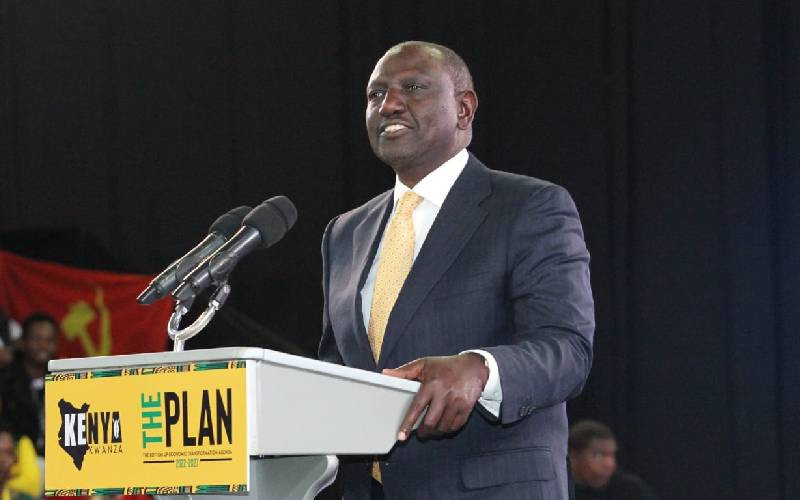×
The Standard e-Paper
Stay Informed, Even Offline

Deputy President William Ruto has today launched his five-point manifesto ahead of the August 9 polls.
Dubbed ‘The Plan’, Ruto said Kenya’s economic challenges require immediate attention and one of his priorities as President is to revive the economy in a post-Covid era.